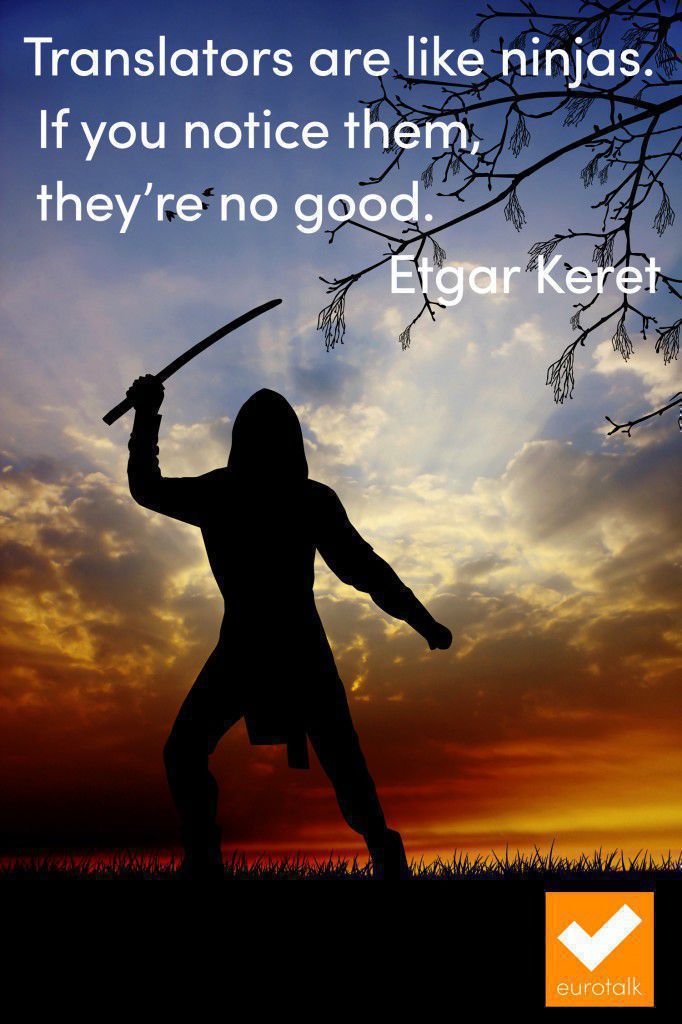Learning languages helps me help other people
Darren took part in our uTalk Challenge in January this year, choosing Polish, and he’s continued in February with Czech. Here’s his language learning story…
My name is Darren, I’m from Bath, England, and my language journey really began about 10 years ago.
I had studied French and German at school but I didn’t really enjoy them. I didn’t realise how useful languages could be until a friend asked me to help her learn some Latin for her nursing exam. She gave me the list of things she needed to learn with a look of sheer terror on her face and I told her ways to easily remember each word. You could see the panic in her eyes fade as she realised she could remember everything after just a couple of hours.

Soon after, I started working with a lot of Polish girls. It was quite difficult because only one or two of them could speak English, so I decided to try to learn enough Polish to be able to say “Good morning”, “You need to do this…”, “Would you like a coffee?” and other essential phrases. My first few attempts at communication were hilarious! My pronunciation was terrible and led to smiles and giggles, but they were all really impressed that I even tried and my blushes soon turned to grins of pride. I started doing the same when other new people arrived and was soon spouting phrases in Polish, Hungarian, Latvian, Romanian, and Greek. The look of happy surprise as a nervous new employee is greeted in his or her own tongue is itself worth the effort of learning.
I try to study a different language every day of the week for about two hours. Now I have friends from all over the world and teach English as a Second Language so I am lucky enough to be able to practise different languages every day. I’ve lost count of the number of times I have been able to help someone in the street when they have asked someone in broken English if they know where some place is, or in a shop when they don’t understand what is being said to them by a cashier. One time I was even asked to help translate for a friend who had been attacked and needed to talk to the police. Languages are now very important in my life and are my biggest passion.
One last thing: my original attempts at speaking Polish eventually led to me marrying the girl of my dreams. Just another reason to start your own language adventure!
When is a cake not a cake?
You might not believe it, but I regularly arbitrate fairly ferocious arguments about cake. And it’s not because my colleagues can’t share cake (although this has been known to be a problem in the past).
The reason is that this little word, which you would think would be a simple thing to translate, actually gets people quite upset. Throughout the world, different sorts of cake prevail, and some people (understandably) get quite grumpy when you present them with the wrong type of cake. It’s important stuff.
 One of our most recent additions to the uTalk app is Esperanto, where we had to make a very difficult decision about whether to translate the phrase ‘piece of cake’ (available in uTalk Essentials because, let’s face it, it’s essential vocab), as ‘peco da torto‘ or as ‘peco da kuko‘. For English speakers, ‘kuko’ was favoured because it is close to ‘cake’, and therefore brings to mind a big, squashy Victoria sponge. ‘Torto’, on the other hand, inevitably conjures something which is not a cake at all, but a tart – or even a flan: something flimsy and possibly, horror of horrors, covered with fruit.
One of our most recent additions to the uTalk app is Esperanto, where we had to make a very difficult decision about whether to translate the phrase ‘piece of cake’ (available in uTalk Essentials because, let’s face it, it’s essential vocab), as ‘peco da torto‘ or as ‘peco da kuko‘. For English speakers, ‘kuko’ was favoured because it is close to ‘cake’, and therefore brings to mind a big, squashy Victoria sponge. ‘Torto’, on the other hand, inevitably conjures something which is not a cake at all, but a tart – or even a flan: something flimsy and possibly, horror of horrors, covered with fruit.
Nonetheless, in the final stages of the battle, ‘peco da torto’ won, and went through to the final translation. Here’s why: our app is used all around the world by people who can learn from their own native language: we currently have 128 languages in uTalk, and people can learn any one of these from any other. For Esperanto, this is particularly important, because Esperanto is a language that nearly all Esperantists (barring a maximum of a few thousand native speakers) speak as a second language, making the Esperantist community very multinational.
So we want to make our Esperanto translation as internationally relevant as possible. And for most Europeans, at least, ‘torto’ will bring to mind a fairly generic type of cake, whereas ‘kuko’ might be slightly less familiar. Taking just a few European languages, we’ll see that in Russian we have торт, Italian torta, Dutch taart, Spanish tarta, Croatian torta, Hungarian torta. Both options would have worked, but ‘torto’ won the more international vote, and when it comes to Esperanto that’s a pretty important factor to consider.
What do you call a cake in your language? Let us know!
Nat
Are translation apps really the answer for travellers?
The first thing you need to do before embarking on a trip to a foreign land is to start learning the language. This will not only impress the locals, but will also make your visit easier and more enjoyable. In this hectic era, however, you may be forgiven for not dedicating the time necessary for learning a new language. In such instances, one might rely on a translation app to help fill in the gaps in your knowledge. But are these apps really an alternative to learning the language?
Of course you will continue to learn a lot while you are abroad. Simply engaging in conversation and navigating the signs and menus will put your skills to the test and improve them in the process. You can use any spare time to enhance your language learning with apps like uTalk. It’s a handy way to learn 111 languages while you’re on the move.
 If you are really stuck though, and haven’t managed to learn anything but a few basic phrases, then you may turn to a different kind of app. iOS, Android and Windows Phone all offer some great apps for translating speech in real time. It’s the sort of technology that was previously associated with science fiction, but now you can download it for free. The Google Translate app is one of the most popular real-time speech translation apps for Android and iOS, and it works in 50 languages. Skype also launched a real time translation option recently, and although it is probably the most advanced in terms of technology, it’s only available in two languages at present. Technology like this will inevitably change the way we think about global travel.
If you are really stuck though, and haven’t managed to learn anything but a few basic phrases, then you may turn to a different kind of app. iOS, Android and Windows Phone all offer some great apps for translating speech in real time. It’s the sort of technology that was previously associated with science fiction, but now you can download it for free. The Google Translate app is one of the most popular real-time speech translation apps for Android and iOS, and it works in 50 languages. Skype also launched a real time translation option recently, and although it is probably the most advanced in terms of technology, it’s only available in two languages at present. Technology like this will inevitably change the way we think about global travel.
I have tested many of these apps and have found that they can be a godsend when you are searching for that one elusive word to help you get your point across. You can also try to convince a bewildered local to speak into the phone in the hopes that the voice recognition software and the translation software work well enough to produce a coherent sentence. Unfortunately such apps are still a long way from perfect, as factors such as regional dialects and background noise can seriously impact the quality of the translations.
There are also practical problems posed by using a translation app in a restaurant or train station. You shouldn’t be surprised to hear irritated grunts of derision from locals, especially if there is a queue behind you. That’s why far from being a substitute for language learning, these apps are at best a means to supplement a traveller’s existing language skills.
At first such groundbreaking technology seems as though it holds the revolutionary potential to knock down language barriers and make language learning redundant. But although the level of technology available now is far beyond what it was a decade ago, there’s still plenty of room for improvement. It takes a human mind to understand the nuances of language and intended meaning. These apps might be great for ordering food on holiday, but you can’t use them to have meaningful conversations or to translate literature. The day such apps finally make language learning redundant will be the same day that translation technology replaces professional translation services.
Author biog: Tom Rowsell is a writer and language enthusiast from East London. His fascination with language began while studying Old English literature at University.
Quote of the week: 21 Jun 2014
“Translators are like ninjas. If you notice them, they’re no good.” Etgar Keret
For more like this, find us on Pinterest.
Embed This Image On Your Site (copy code below):
Will online translators make language learning redundant?
Microsoft have just unveiled the latest version of their Skype Translator, which will enable us to chat with people all over the world even if we don’t speak their language. This story ran in the Daily Mail here in the UK yesterday, under the rather depressing headline, ‘Don’t bother learning a foreign language! Skype will soon translate spoken foreign words in real time’.
I can definitely see that this innovation has its uses, particularly if you need to speak to a client or colleague in another country, and don’t have time to learn their language. And I’m in no way trying to undermine all the years of research that have gone into its development – it looks incredibly clever and impressive. But I think it’s unrealistic to believe that it’s going to make language learning redundant.
For one thing, I haven’t had a lot of faith in translation software since the time I needed to write an email to a colleague in Dutch. Since the only Dutch I know is ‘waar is de winkel?’ (‘where is the shop?’) and ‘de tweemansbob’ (‘two-man bobsleigh’), naturally I turned to Google Translate, copied and pasted the offered translation and sent the email, feeling pretty proud of myself. Until my colleague replied, telling me – in English – to never use Google Translate for Dutch again, because what I’d sent him made no sense at all. Hard to tell by email, of course, but I always picture him wiping away tears of laughter as he wrote his reply.
This was a few years ago, and I realise things have come on a bit since then. But these days if I have to use an online translation tool, I’ll always copy the text back in and check it makes sense in English before I hit send. And even then I’m never completely convinced I haven’t made some horrible mistake. As with any translator, if you don’t know the language at all, you have to put complete faith in the intermediary to correctly translate what you’ve said. With people, you can generally tell if they know what they’re talking about. With computers, it’s not so easy – especially given that this particular innovation also relies on speech recognition technology to even decide what needs translating in the first place.
I’m no expert but I’d assume most people with a need for the Skype Translator will be those needing it for business calls, and in that case you definitely need to know your translator is 100% reliable, or who knows what you could end up agreeing to? Presumably those who call friends or family through Skype will already know at least a little of the other person’s language – unless they’re calling their in-laws, in which case it’s possibly even more important to avoid embarrassing translation mistakes.
Secondly, even if I were completely confident that the translator was accurate, I’m not sure I’d want to use it. The brilliant thing about video call software like Skype is that it allows you to talk face-to-face with someone on the other side of the world, where before they would have been a disembodied voice on the phone or, even more impersonal, a written letter or email. Microsoft describes the translator as ‘human to human interaction’ but it’s not really – it’s ‘human to computer to human’, and what you hear is not your friend or colleague but a computer-generated voice giving you the translation of what they’re saying.
Personally, I’d rather do a bit of preparation, then fumble my way through a conversation, probably in a mix of languages and littered with mistakes, than have to sit and wait for a program to decide what it thinks I said and pass it on. Not only that, but making the effort to learn at least a little of the other person’s language shows respect for them and their culture. It’s well known that speakers of other languages would much rather you try, and get it wrong, than sit back and let a computer do all the work.
Finally, as we all know, there are no end of benefits to learning a language, far beyond making it through one Skype call. We’ve covered all these benefits elsewhere, so I won’t go into them all again. And in fairness, I don’t think Microsoft are trying to replace language learning. But I can’t agree with the Daily Mail‘s headline – just because a machine exists that can help us out in a tight spot, it doesn’t mean we should never make the effort to learn a language again. Language learning is as important as it’s ever been, if only to avoid an embarrassing situation like this, when we’re forced to leave the computer behind…
(Apologies in advance to any Italian speakers!)
Liz


